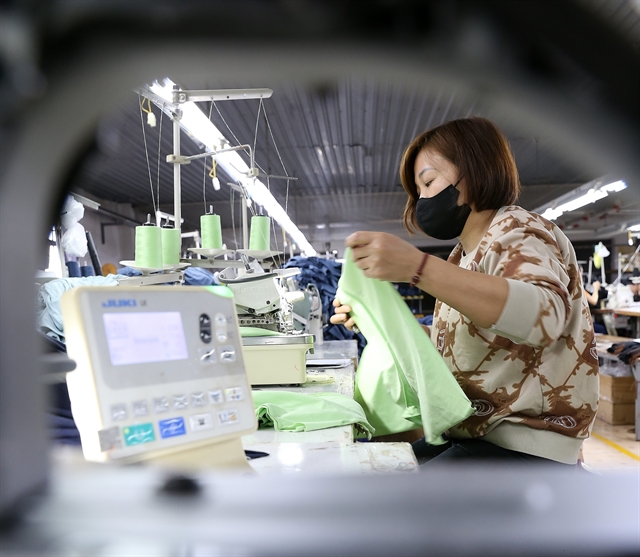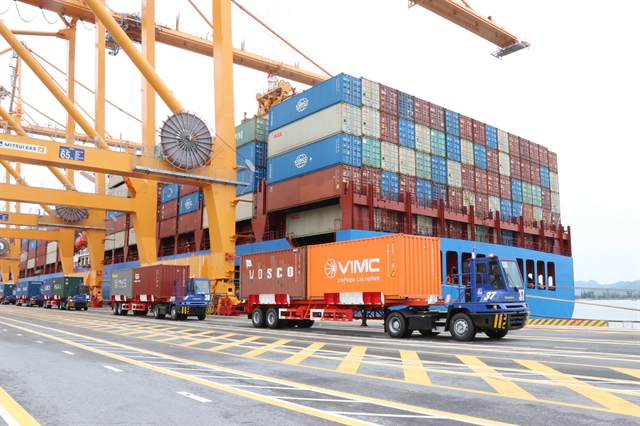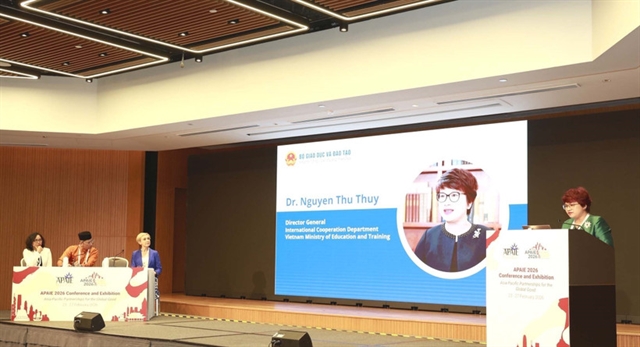 Economy
Economy


|
| A female worker at Việt Huy Garment Factory in Hà Nội. Companies that employ women and men equally are better equipped to manage climate risks, reduce emissions, seize new growth opportunities and attract stronger investor support. — VNA/VNS Photo Lê Đông |
HÀ NỘI — The private sector must take action to boost women’s participation in the economy to address a looming talent shortage and unlock inclusive, sustainable growth, according to a report by the International Financial Corporation (IFC) released on Wednesday.
The report, titled 'The Green Edge: Women’s Employment and Leadership for Sustainable Business in Việt Nam', reveals that while the solar energy, plastics recycling and rice production sectors are central to Việt Nam's climate ambitions, women remain significantly underrepresented – holding just 23 per cent of formal jobs and 21 per cent of leadership roles on average.
As these sectors scale to meet growing demand and unlock new green job opportunities, persistent gender gaps risk constraining innovation, slowing growth and undermining competitiveness and productivity, the report pointed out.
This first-of-its-kind diagnostic recommends practical steps for businesses in these sectors to expand opportunities for women through targeted recruitment, upskilling and inclusive policies in the workplace and in the supply chain.
“When women work, economies win. Unlocking jobs for women fuels shared prosperity, strengthens resilience and drives inclusive growth – especially for sectors that are relevant to Việt Nam’s green transition,” said Australia’s Ambassador to Việt Nam Gillian Bird.
“By investing in women’s participation in climate-critical sectors, we can accelerate progress toward net-zero goals while ensuring that the benefits of growth are shared by all,” she added.
Of note, the report reveals companies that employ women and men equally are better equipped to manage climate risks, reduce emissions, seize new growth opportunities and attract stronger investor support.
The World Bank Group estimates that Việt Nam’s net zero pathway is expected to create close to one million new jobs by 2040, with particular demand for science, technology, engineering and maths (STEM)-related skills, urging deliberate action to ensure women benefit equally from these opportunities.
“Việt Nam’s bold commitment to a low-carbon, climate-resilient economy is not just a necessity – it’s a powerful opportunity for businesses to lead transformative change and help shape a more inclusive future,” said Thomas Jacobs, IFC Country Manager for Việt Nam, Cambodia and Lao PDR.
“This sector-by-sector roadmap shows how inclusive companies are better positioned to close skills gaps, create better jobs, attract investment and lead Việt Nam’s green transition with stronger, more resilient operations.”
The report is part of IFC’s broader efforts, funded by the Australian government’s development programme in Việt Nam, to support private sector-led climate solutions that drive job creation for women and men, improve people’s livelihoods and climate resilience and align with national development goals. — VNS




